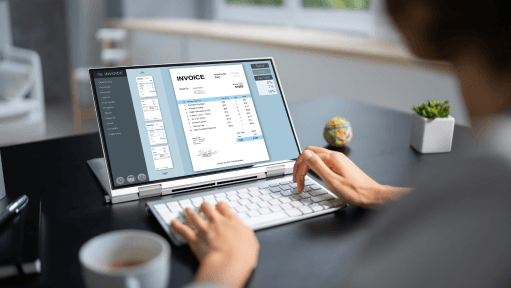
Navigating E-Invoicing Compliance in the UAE’s Financial Sector
Adapting to Digital Tax Regulations for Enhanced Transparency and Efficiency
The United Arab Emirates (UAE) has made significant strides toward adopting digital frameworks to enhance economic transparency and efficiency. E-invoicing, now a key compliance requirement in many industries, including finance, represents a cornerstone of this digital transformation. For financial institutions operating in the UAE, aligning with e-invoicing regulations is essential for ensuring compliance, fostering trust, and driving operational excellence.
E-Invoicing in the UAE’s Financial Landscape
E-invoicing, or the digital exchange of invoicing data, is becoming increasingly critical as the UAE aligns its tax systems with global best practices. The Federal Tax Authority (FTA) mandates the use of e-invoicing systems to streamline VAT processes, enhance transparency, and reduce fraud.
In the financial sector, compliance with these regulations requires meticulous planning, given the complexity of transactions and the necessity of meeting both local and international standards.
Compliance Challenges in the UAE
-
Adherence to FTA Standards
The FTA has specific requirements for e-invoicing, including mandatory fields, standardized formats, and real-time reporting capabilities. Financial institutions must ensure their systems align with these criteria to avoid penalties. -
Integration with Legacy Systems
Many UAE financial institutions operate with legacy IT infrastructures that are not inherently compatible with modern e-invoicing platforms. Upgrading or integrating these systems presents technical and financial challenges. -
Cross-Border Considerations
As a global financial hub, the UAE’s institutions often handle cross-border transactions. Aligning with e-invoicing requirements across multiple jurisdictions adds an additional layer of complexity. -
Cybersecurity Risks
The sensitive nature of financial data requires robust measures to safeguard e-invoicing transactions. Institutions must balance compliance with the FTA’s standards and the need for advanced cybersecurity protocols.
Strategies for Effective Compliance
-
Invest in UAE-Compliant E-Invoicing Platforms
Select e-invoicing solutions certified by the FTA and capable of adapting to future regulatory changes. These platforms should facilitate automated VAT calculations and ensure real-time reporting. -
Enhance Staff Training
Equip financial teams with the knowledge to manage e-invoicing systems and understand FTA regulations. Regular workshops and training sessions can help institutions stay ahead of compliance requirements. -
Engage Local Expertise
Collaborate with UAE-based tax advisors and legal experts to navigate the evolving regulatory landscape effectively. Local insights can be invaluable in ensuring compliance. -
Prioritize Data Security
Implement robust cybersecurity measures such as encryption, multi-factor authentication, and regular audits to protect sensitive financial data from unauthorized access. -
Leverage Automation and AI
Automating invoicing processes reduces errors, enhances accuracy, and ensures timely submission. AI-driven analytics can monitor compliance metrics and flag discrepancies for quick resolution.
Benefits for UAE Financial Institutions
While compliance is the primary driver, e-invoicing offers broader advantages for the UAE’s financial sector:
-
Operational Efficiency: Faster processing times and reduced reliance on manual workflows.
-
Cost Savings: Lower administrative costs through digitized invoicing.
-
Enhanced Transparency: Strengthened trust with regulatory bodies and clients.
-
Global Competitiveness: Aligning with global standards positions UAE institutions as leaders in the financial industry.
Conclusion
E-invoicing compliance is more than a regulatory obligation; it is an opportunity for financial institutions in the UAE to modernize their operations and lead in a digital-first era. By adopting the right technologies, enhancing collaboration with regulators, and prioritizing data security, UAE’s financial sector can not only meet compliance standards but also achieve greater efficiency and global competitiveness. As the UAE continues to solidify its position as a global financial hub, embracing e-invoicing will be pivotal in shaping its economic future.
For any enquiries or information, contact info@thelawreporters.com or call us on +971 52 644 3004. Follow The Law Reporters on WhatsApp Channels